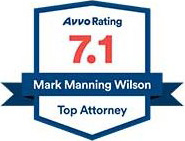If you find yourself dealing with a workplace injury in the state of Illinois, you’re not alone. Accidents happen, and when they do, you need to be prepared to protect your rights and secure the compensation you deserve. One of the most crucial steps in this process is finding a knowledgeable workers’ compensation lawyer who can guide you through the complexities of the Illinois workers’ compensation system.
To help you make an informed decision, we’ve put together a list of essential questions to ask your potential attorney.
Q1: What Is Your Experience in Handling Workers’ Comp Cases in Illinois?
Illinois workers’ compensation laws can be intricate, and they often change. It’s vital to choose an attorney who specializes in workers’ comp cases and has a track record of successfully representing clients in Illinois. Ask about their experience, and inquire about specific cases they’ve handled that are similar to yours. A seasoned attorney will be well-versed in the state’s laws and regulations, giving you an advantage in your case.
Q2: How Will You Communicate with Me Throughout the Process?
Communication is key during the workers’ compensation claim process. Make sure your lawyer is accessible and will keep you informed about the progress of your case. Ask about their preferred mode of communication, response times, and how often you can expect updates. Clear and open communication will help ensure that you stay informed and engaged in your workers’ compensation case.
Q3: What Costs and Fees Should I Expect?
Understanding the financial aspect of hiring a workers’ comp attorney is crucial. Inquire about their fee structure, whether they work on a contingency basis (meaning they only get paid if you win your case) or charge hourly fees. Additionally, ask about any upfront costs or expenses you might be responsible for. A transparent discussion about fees will help you plan your budget accordingly.
Q4: How Will You Investigate and Build My Case?
To succeed in your workers’ compensation claim, your attorney needs to build a strong case on your behalf. Ask about their approach to investigation and gathering evidence. They should be prepared to gather medical records, interview witnesses, and consult with experts if necessary. Understanding their strategy will give you confidence that your case is in capable hands.
Q5: What Is the Likely Timeline for My Case?
While it’s difficult to predict exact timelines, your attorney should be able to provide a general idea of how long your case might take. This can help you manage your expectations and plan for any potential delays. It’s also essential to inquire about key milestones in the process, such as mediation or hearings, and what you can expect at each stage.
Q6: What Are the Potential Outcomes of My Case?
Your attorney should be honest about the potential outcomes of your workers’ comp case. Ask about the best-case and worst-case scenarios, as well as the likelihood of each. Understanding the possible results will help you make informed decisions throughout the process.
Q7: How Will You Handle Disputes or Appeals if Necessary?
Not all workers’ comp claims are resolved amicably. In the event of a dispute or the need to appeal a decision, your attorney should have a strategy in place. Ask about their experience with handling appeals and their success rate in such cases. Knowing that your attorney is prepared for all possibilities can provide peace of mind.
In Illinois, having a knowledgeable workers’ comp attorney by your side can make all the difference in the outcome of your case. By asking these essential questions and carefully considering the answers, you can select an attorney who will advocate for your rights and help you navigate the complexities of the Illinois workers’ compensation system.
In Conclusion
If you have suffered a work related injury or illness, the process of finding the right workers’ comp lawyer in Illinois is a crucial step in securing the compensation you deserve. Remember that the right attorney should have experience in Illinois workers’ comp cases, transparent communication, a clear fee structure, a strategic approach to building your case, and a plan for handling disputes or appeals if needed.
With the right legal representation, you can focus on your recovery while your attorney works tirelessly to protect your rights.







